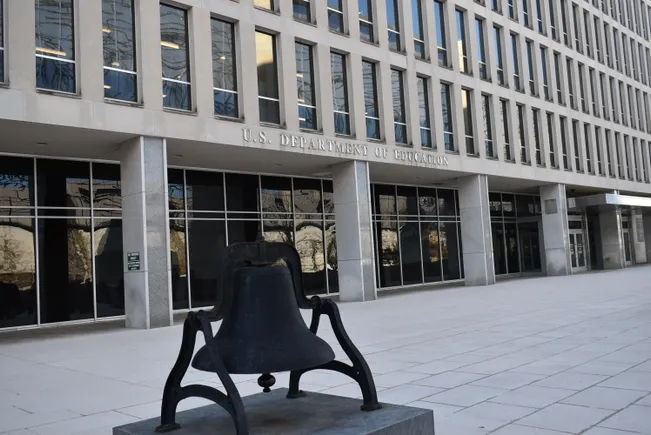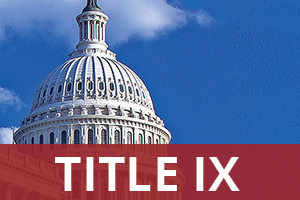Get stories like this delivered straight to your inbox. Sign up for The 74 Newsletter
Two federal judges on Friday ruled against President Donald Trump’s move to suspend food stamp benefits starting November 1 amid the month-long government shutdown, with each noting contingency funding is available.
It’s unclear if the Trump administration plans an appeal or how quickly food assistance can flow to the 42 million Americans who rely on the Supplemental Nutrition Assistance Program. Sixteen million of them are children, putting pressure on schools to address their needs.
U.S. District Judge John McConnell of Rhode Island ordered the U.S. Department of Agriculture to distribute the funds in a timely manner using contingency money.
“SNAP benefits have never, until now, been terminated,” McConnell said, as reported in The Hill. “And the United States has in fact admitted that the contingency funds are appropriately used during a shutdown, and that occurred in 2019.”
In a separate ruling, U.S. District Judge Indira Talwani of Massachusetts gave the Trump administration until Monday to decide whether it will provide at least some food stamp benefits to recipients. She indicated the suspension of SNAP benefits is contrary to law.
She found fault with the defendants’ assertion that the U.S Department of Agriculture is prohibited from funding SNAP because Congress has not enacted new appropriations for the current fiscal year.
“To the contrary, defendants are statutorily mandated to use the previously appropriated SNAP contingency reserve when necessary and also have discretion to use other previously appropriated funds,” she wrote.
Despite the judges’ rulings, many advocates say some kids will go hungry in November because the process for obtaining the aid consists of multiple steps — some of which have already been missed for those who receive help at the start of every month.
On October 28, more than 20 states, the District of Columbia, and three governors sued the USDA for suspending November’s SNAP benefits. They called the move unprecedented and illegal.
“SNAP is one of our nation’s most effective tools to fight hunger, and the USDA has the money to keep it running,” New York Attorney General Letitia James, long embroiled in her own legal battle with the president, said in a statement. “There is no excuse for this administration to abandon families who rely on SNAP, or food stamps, as a lifeline. The federal government must do its job to protect families.”
Gina Plata-Nino, interim director for SNAP at the Food Research & Action Center, said her organization encouraged the USDA to tap into its contingency and reserve funds to save children and families from going hungry. By missing this opportunity, at least some recipients will likely miss their allotment.
Plata-Nino said states were directed by federal officials on Oct. 10 to stop reporting critical data — a list of household eligibility and food stamp allocation — information they send directly to electronic benefit transfer contractors, who are key in distributing the aid.
“Even in the best-case scenario, if the judge says, ‘We rule in your favor and we demand that this happens right now’, and the Trump administration doesn’t appeal…the process of getting benefits into recipients’ accounts would take time,” she said.
Arlen Benjamin-Gomez, executive director of EdTrust New York, a statewide education policy and advocacy organization, said it’s clear that serious damage has already been done to what is an essential program.
“We know from what has happened so far with this administration that when they make announcements like this, it does have a direct impact on programs and the ability to sustain them,” she said. “For example, there was an announcement of federal cuts to Head Start very early on in the administration, and the program actually shut down. It’s still recovering. So, we can’t predict the chaos that is spread by this most recent effort to cut benefits.”
Benjamin-Gomez praised New York for declaring a state of emergency on the matter: Gov. Kathy Hochul is committing an additional $65 million in new state funds for emergency food aid to support state food banks. But not all states will do the same.
Ian Coon, spokesperson for Alliance for Education, an independent, local education fund that supports Seattle Public Schools, said his organization has already earmarked funding to bridge the gap for those in need.
He said the Alliance decided in late October to fund $150,000 in gift cards to area food stores for families in crisis. He said school staff will help identify children in need and offer the assistance of $25, $50 or $100. The $150,000 comes from a reserve fund.
“We are fully aware it’s not a long-term solution, but we needed to do something,” Coon said.
Carolyn Vega, associate director of policy analysis for Share Our Strength, which runs No Kid Hungry, said her organization also does not predict an abrupt or smooth end to the suffering of American families who rely on these benefits.
“We are not holding our breath for the money to start flowing today,” she said. “Kids can’t wait: Families have to eat every single day. We know from our extensive work with schools that teachers already see kids show up to school hungry on Monday mornings. We can only imagine how much worse that would be if a family came in and were expecting to see benefits on Saturday and they did not. It’s an unbelievable strain for food banks. We know that schools will be an important resource for many families, but they can’t fill in the gap.”
In fiscal year 2023, nearly 80% of SNAP households included either a child, an elderly person or a nonelderly individual with a disability, according to the USDA. About 39% of SNAP participants were children that year.
A statement on the federal agency’s website blames Senate Democrats for the shutdown.
“They can continue to hold out for healthcare for illegal aliens and gender mutilation procedures or reopen the government so mothers, babies, and the most vulnerable among us can receive critical nutrition assistance,” the statement read.
The department declined to comment on the judges’ rulings.
Did you use this article in your work?
We’d love to hear how The 74’s reporting is helping educators, researchers, and policymakers. Tell us how





